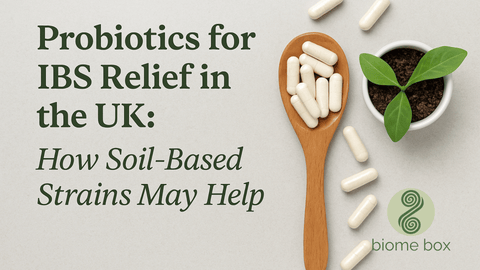Resilient Societies

A Resilient Society
Built on Healthy Land
We are facing the very real prospect of losing the capacity to eat healthy food grown on healthy land upon which we live. Land is increasingly choked up in the red tape of government funded land stewardship schemes, swallowed up by the black hole of ‘energy’ crops, smothered by attempts to protect nature, through holding land within the imposed limits of conservation trusts, covered over for development opportunities, or drenched in chemicals that pollute whole ecosystems.
We are causing untold irreversible damage, impacting human health, nature, biodiversity, water and air quality, losing soil along with billions of years of evolutionary complexity and few are taking the time to look to the horizon at what we could be creating instead.
You can't live life planning for everything that could go wrong, but we can lay down the best foundations, to improve the chances of everything going well.
Money is directed out of communities, away from the land and towards technological innovation. People moan about injustice and inequality, spend hours researching conspiracy theories and blame the government, the global elite, or corporate monopolies for all their struggles and woes. Yet if we could all just step back for a moment from what we may think is going on, we can begin to see with greater clarity.
Where is everyone spending their cash?
If you study where people choose to spend their money, you can easily see that people would rather line the pockets of the people they moan about, rather than work out how to direct or keep their money within their own communities. Money that leaves the community unnecessarily - has few routes back in.
What valuable services do people within communities provide?
Valuable, necessary and well performed services provided by individuals, offer a pathway for money to return back into communities, but when those services are not desirable or necessary to those with cash to spend, they do nothing to contribute towards a thriving economy.
In order for communities within human society to thrive, money must flow not just around communities, but also into and out of communities.
Internal movement
Money within a community flows around necessary local services, food production, infrastructure based services, like design, building and maintenance of piping, buildings of electrical lines and other basic services like cooking, gardening or childminding.
External movement
Movement of money into and out of communities is triggered through offering services that are entirely unique to a specific community, or the expertise of the people living within them. Things like specialist foods, artisan produce, hospitality and tourism, skilled craftsmanship, teaching, arts and extraction of natural resources, to name a few example.
You can see from this that there are generally essential services that are traded within communities and services that further enhance the quality of life that can be traded outside of the community.
Therefore there are two necessary approaches to help communities and subsequently society thrive.
- Keep essential requirements (and the movement of money for such services) within the community as far as possible. This maintains a flow of exchange, that drives community based solutions and evolution. It also prevents accumulation of wealth outside of the community, that won’t make its way back in.
- Develop the uniqueness of land, people and place to provide services that offer maximal value for trade outside of the community. This means providing services that people really want to spend their cash on, pulling money back into the community. This could involve people developing such a high level of skill in a particular area that their wisdom and practical skill is sought out by other communities. It could involve producing a particular food or by-product that the land is particularly suited to, be that livestock, or fruit, or even a very fine quality of wool, afforded specifically by the environmental conditions.
What is happening in today’s world however, is that communities are becoming poorer as people go further afield to buy essential services that should come from the community itself. This is largely fuelled by the loss of useful skills, excess demand, price and also an expectation of instant service that people have become accustomed to. Rather than wait months for a local builder, who charges more for a high quality service, people will pay someone from further afield who is free sooner and charges less for a poorer standard of work. This of course has consequences, directing money out of the local community and distorting the perception of demand, which discourages younger generations from developing a high level of skill in a necessary trade.
This is further compounded by the fact that people are buying such a large amount of non-essential luxury goods, further directing money outside of the community and into the bank accounts of those perfectly placed to take advantage of (and encourage) naive consumerism.
We need to restore mechanisms that mobilise money within communities, to make it advantageous to maintain local services locally. A local currency (as an addition to the mainstream currency), initially offered at a reduced exchange rate, that can only be circulated within a specific postcode could serve this purpose well. It means that locals are encouraged financially to drive local services and skill development. It buffers communities from wider economic unrest, ensuring they can access more of the available essential services - like food, water, localised energy production and maintenance of infrastructure.
We also need to encourage the development of unique, highly skilled and specialist services within communities that are further emphasised and enhanced by the context in which they are provided. I.e. a wool and clothing factory in an area that is particularly suited to rearing sheep, or an artisan bakery in an area well suited to arable crops, with the capacity to harness water for milling.
Specialist services like this pull money back into the community, the more effort the people in a community apply to bettering themselves, the more value they are able to offer and the more affluent the community can become, affording them a well earned improvement in their quality of life.
Communities must apply the effort required to meet essential requirements for survival, within the community. From here individuals must differentiate further through their own unique talents and capacities, attaining the highest level of mastery possible to ensure they have something to offer the world, whatever that unique offering may be.
If everyone in a community buys everything from Asda and Amazon and has no valuable service to offer to those within, or outside of the community, then they will make themselves and everyone around them poorer, reducing the quality of life for all.
The foundations for every community rest firmly on the essentials of food, water and shelter. Yet increasingly land for producing food, belongs to people outside of the community. This is something that contributes to great unrest and destabilises communities and society, but its not simply a case of taking the land back…..it MUST BE EARNED. The loss of everyday life essentials is not solely the fault of the power hungry, it is also the wilful ignorance and complacency of everyday people.
Whilst people do not strive to better themselves through all hardships, they inevitably weaken themselves, choosing instead a life of comfort and convenience. This has a cost and not one that people would willingly pay, because the more one chooses comfort and convenience, the worse the quality of life and level of fulfillment becomes.
In order to create a healthy society, communities must begin by earning back the land required to service the communities basic needs. Healthy land produces healthy rivers and water stores and healthful and plentiful food. People disconnected from the resources afforded them by their own land will inevitably suffer in a myriad of ways. From poor health through consuming imported instead of fresh food and a lack of opportunities to feel valued and respected by others in the community, to social poverty that causes malnourished children and chronic mental health disorders.
The land can be earned back through hard work, effort, discipline, resilience and strength. Individuals must first get strong in themselves, in order to help communities get strong, which in turn creates strong societies.
Getting strong is simple, but it’s not easy.
Getting strong means eating well, exercising, not giving into watching TV all weekend, playing computer games or eating junk food. It means committing to doing the necessary work to lift yourself up and do whatever you must do to get yourself right and keep yourself right.
When enough individuals do this, then good things (remarkable things) WILL happen.
If people do not do this, then life for every individual that doesn’t put in the effort will continue to degrade and they will have to learn to tolerate their lives, instead of feeling alive, vital and fulfilled.
It might be hard work….but in truth, there is no easier alternative.






